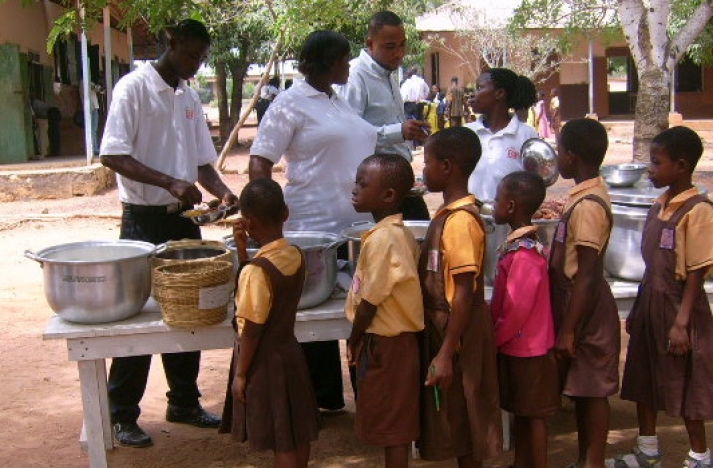
School feeding caterers in the Eastern region are demanding increment in the school feeding grants following skyrocketing prices of food items.
According to the caterers, food prices have increased multiple times but the government still pays Ghc1 per plate of meal making it extremely difficult to improve the quality of food served.
“When I started school feeding, cooking oil was Ghc150 but now Gh440. A bag of maize was Ghc150 but it is now Ghc550 but the government is still paying Ghc100 per student. The government deducts tax from the money as well so we beg that it must be increased. We agree that economic hardship is everywhere but we are begging,” the caterers said at a youth empowerment forum organized in Koforidua.
The caterers also appealed to the government to pay their arrears stating that they are being dragged to court by their creditors for nonpayment of food purchased on credit.
The Member of Parliament for Assin Central Kennedy Ohene Agyapong who was the main speaker at the event concurred with the caterers on the need for the feeding grant to be increased.
“I have maintained that the feeding grant of Ghc1 is too small even in the past when prices of food items were low. So I am going to take it up.it is a very good analysis that you have made. Government is aware of the situation”.
On the issue of delay in payment of arrears, Kennedy Agyapong said will take the matter up to facilitate the payment.
He however warned that “but I hope you are not one of those caterers that some of the women organizers and Coordinators on their own have given you schools to cook without approval from the ministry of finance and gender ministry. Those caterers have problems because they are not known by the government. It is some party members who used their own powers to give school feeding contracts to the women”.
The Ghana School Feeding Programme (GSFP) is an initiative of the comprehensive Africa Agricultural Development Programme (CAADP) Pillar 3 which seeks to enhance food security and reduce hunger in line with the United Nations (UN) Sustainable Development Goals (MDGs) on hunger, poverty and malnutrition.
The basic concept of the programme is to provide children in public primary schools with one hot nutritious meal, prepared from locally grown foodstuffs, on every school-going day.
The aim is to spend 80% of the feeding cost in the local economy for economic growth and boost agriculture.
The government indicated in the 2022 budget statement and economic policy presented to Parliament by Finance Minister Ken Ofori-Atta, that the program will be expanded from 3.4 million to over 4 million beneficiaries in 2022.
However, concerns have been raised over the quality of meals being served.
Meanwhile, the advocacy group, SEND Ghana has asked the government to increase the school feeding grant from Ghc1 to GHS2 to improve the quality of meals given to school children.
“We maintain that this is inadequate and cannot guarantee a healthy meal for children who require nutrition for their cognitive and physical development. We urge the government to increase the amount to at least GHS2 per child to ensure the program attains its short-term objective to reduce hunger and malnutrition,” part of the release from SEND Ghana reads.
Source: Ghana/Kasapafmonline.com/Kojo Ansah



